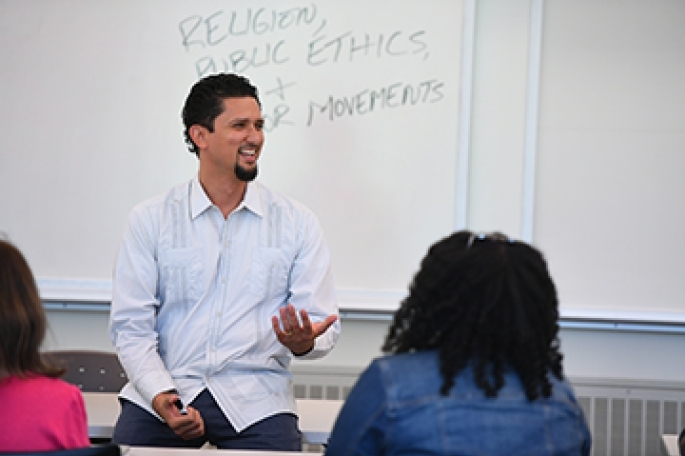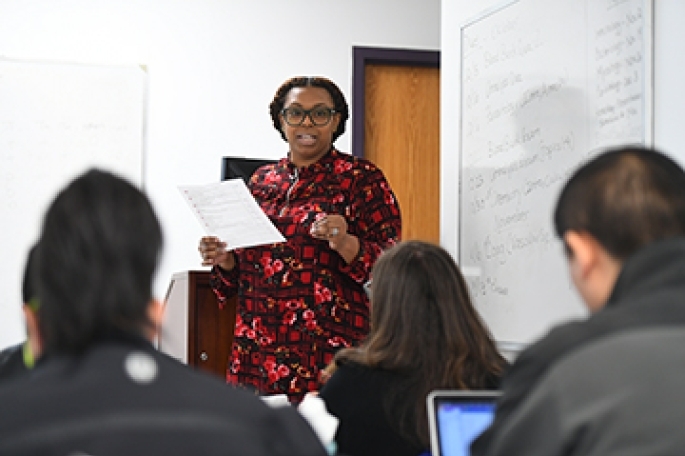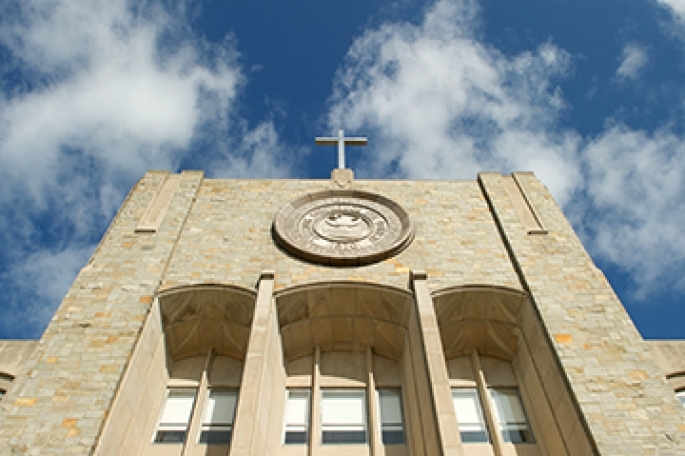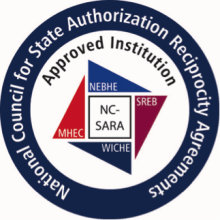

Office of Distance Education
- Home
- Academics
- Academic Resources and Programs
- Office of Distance Education
Your online courses are taught by professors who know how to teach online effectively. St. John's Online trains faculty specifically in online instruction, giving them the tools and strategies to create courses that work for distance learners. The result? Classes that keep you engaged, assignments that make sense for online learning, and instructors who get what you're dealing with as an online student.
Services and Resources

Student Resources
St. John's offers the same services to our online students that are available to our on-campus students. Our services can be delivered via a variety of methods (email, phone, Skype, etc.) so you never have to come to campus.

Preparation to Teach Online
Faculty members need to be certified to teach hybrid and fully online asynchronous courses at St. John’s University. Hybrid courses substitute any classroom-based teaching with online learning activities.

Professional Development Opportunities
Structured faculty development opportunities include Online Teaching Essentials, a course designed to introduce online teaching; Advanced Online Teaching Strategies, which focuses on more complex course designs and pedagogies; and workshops for learning and improving specific skills.

Course Design Services
The Office of Distance Education instructional design team meets with individual faculty or departments to help design effective and engaging online and hybrid courses. The instructional design team assists with course design, technology integration, and pedagogy, as well as provides tips and tricks for both experienced instructors and those new to teaching online.

Faculty Resources and Support
In order to support their teaching, St. John’s University and the Office of Distance Education have created and collected an array of resources faculty may use to enhance the design and improve the quality of their online course(s).

About ODE
The Office of Distance Education provides a wealth of support for St. John’s faculty. Through workshops, consultations, and online resources, faculty members are offered a variety of ways to improve their online and hybrid courses, teaching skills, and pedagogical approach.
Policies and Regulations
Accredited Online Degrees
Since 1870, St. John’s University has educated over 140,000 students from all walks of life for rewarding personal and professional lives through our outstanding undergraduate and graduate degree programs. Accredited by the Middle States Commission on Higher Education and registered with the New York State Education Department, St. John’s online degree and certificate programs enable adult learners to get a high-quality education in a flexible and convenient format.
For a complete listing of program-specific accreditations, please see below.
State Authorization
Federal regulations require that colleges and universities that participate in Title IV funding and offer degree programs through distance or online education to students in other states must seek approval from those states to offer such programs. St. John’s University is approved by The State of New York to participate in the National Council for State Authorization Reciprocity Agreements (NC-SARA). NC-SARA is a voluntary, regional approach to state oversight of postsecondary distance education. As a participant in NC-SARA, St. John’s University is authorized to offer its online degree programs to residents of all other states that participate in NC-SARA. For additional information on NC-SARA and the list of states that participate, please visit their website at www.nc-sara.org.

As a provider of distance or online education, St. John’s University is also required by the United States Department of Education to provide all prospective and current out-of-state students with contact information for the appropriate agency in their home state that handles complaints against institutions offering distance learning within that state. Students are expected to first attempt to resolve any complaints directly with St. John's University through the established Student Complaint Process. The process also includes guidelines for appeal if a resolution to a complaint is not satisfactory.
Accreditations
Regional Accreditation
Middle States Commission on Higher Education
3624 Market Street, 2nd Floor West, Philadelphia, PA 19104
Telephone: (267) 284–5000
E-mail: [email protected] Spanish: españ[email protected]
The Middle States Commission on Higher Education is an institutional accrediting agency recognized by the U.S. Secretary of Education and the Council for Higher Education Accreditation.
Chartered by the Regents of the University of the State of New York
Certified by the NCAA - National Collegiate Athletic Association
Accredited by the AAALAC – Association for Assessment and Accreditation of Laboratory Animal Care International
Specialized Accreditation by School/College
St. John’s College of Liberal Arts and Science
- ALA—American Library Association
M.S. Library and Information Science
The School of Education
- TEAC—Teacher Education Accreditation Council
All Undergraduate and Graduate Teacher Preparation Programs
The Peter J. Tobin College of Business
- AACSB International—Association to Advance Collegiate Schools of Business:
Undergraduate & Graduate Programs
Department of Accounting & Taxation (Separate Accreditation)
Chartered by the Regents of the University of the State of New York
Certified by the NCAA - National Collegiate Athletic Association
Accredited by the AAALAC – Association for Assessment and Accreditation of Laboratory Animal Care International
